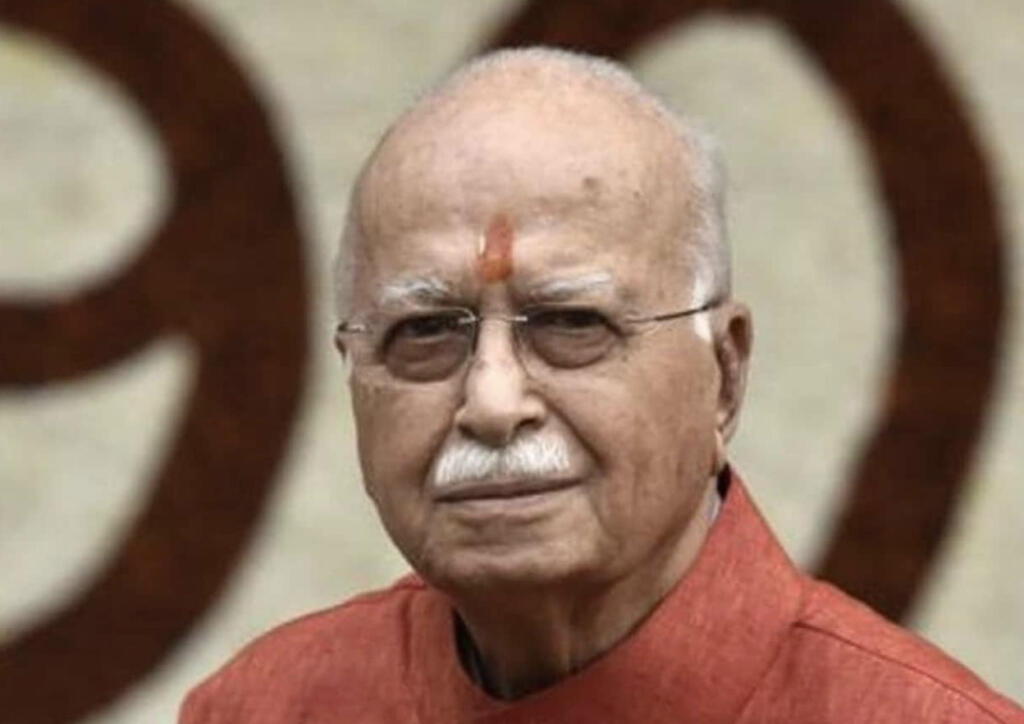From winning only two seats in 1984 to being the single largest party in 1996, the phenomenal rise of BJP in a very short period of time can, to a certain extent, be attributed to one man, LK Advani. However, despite being the prominent leader, it was the end of the road for Advani’s hope to become Prime Minister in the 2009 General elections, and there exist certain reasons for the same.
Advani portrayed as the Iron Man
BJP president Venkaiah Naidu, in 2004, had recommended that Advani must lead the party politically as ‘Loh Purush’ (Iron Man). Thus, BJP portrayed Advani as a ‘Loh Purush with pictures of him showing his fist. However, the move reflected badly on the party as Indians could not accept Advani as Loh Purush. The only Loh Purush India has ever accepted is, who persuaded the 565 princely states to accede to independent India. He was honoured with the title ‘Iron Man of India’ for his great commitment to national integration.
Hinduwadi Advani turned ‘secular’
It is a well-known fact that Advani was the one to take charge of the BJP’s Hindutva campaign to put the party in political reckoning. But, in a move to ensure the coalition politics, he began repositioning himself into the secular mode that eventually affected his identity.
During Advani’s visit to Pakistan, he had praised Mohammad Ali Jinnah. Standing before Jinnah’s tomb, Advani described the so-called founder of Pakistan as “secular” and an “ambassador of Hindu-Muslim unity”. However, the repercussions were quite visible in 2009 when he lost the elections.
RSS took strong objection to Advani’s statements and asked him to resign from his post of BJP president. The relationship between RSS and Advani deteriorated further when the latter’s chief K. S. Sudarshan opined that both Advani and Vajpayee give way to new leaders. Advani complied and stepped down. Thereafter, Rajnath Singh was made the party president.
Advani’s popularity was declining, but despite this, he was made PM face of the BJP in the 2009 general elections. However, the BJP performed even worse than in previous general elections, and Advani’s popularity touched an all-time low.
Advani’s spectacular journey
Advani began his political journey as a volunteer of Rashtriya Swayamsevak Sangh in 1941 as a 14-year-old boy. After the partition tragedy, Advani was anointed as a pracharak of Matsya-Alwar in Rajasthan. Advani became a member of Jana Sangh and soon in 1957, became the President of the Delhi unit of the Jana Sangh.
After this period, the country witnessed the darkest chapter of Indian democracy- Emergency (1975-77). Like thousands of brave men, Advani fought gallantly against the terror unleashed by the authoritarian and oppressive regime of Indira Gandhi. He spent nineteen months in jail during emergency. After the dawn arrived again in 1977, the Jan Sangh allied with the Janata Party to overthrow the oppressive regime of Indira Gandhi in the 1977 elections. That was for the first time that India was without a Congress government at the Centre.
Read more: Lal Krishna Advani: Rebel with a cause
In April 1980, after the National Executive Council of the Janata Party banned its members from being ‘dual members’ of the party and the RSS, Bharatiya Janata Party was formed. Advani became the prominent leader of the newly born BJP. His strategies paid off, and BJP witnessed an outstanding growth of just two seats in 1984 to 86 seats in 1989.
It was during this period that the BJP under the leadership of Advani became the face of the Ram Janambhumi campaign. On September 25, 1990, Advani started his Rath Yatra from Somnath, Gujarat which is considered directly responsible for two outcomes—the demolition of Babri Mosque on 6 December 1992 and the rise of the BJP to power. In the 1991 general elections, it emerged as the second-largest party by winning 120 seats. On 6 December 1992, the Babri Mosque was demolished. At the time of the Mosque demolition, Advani along with other BJP leaders was present in Ayodhya. After the 1996 general elections, the BJP emerged as the single largest party by winning 161 Lok Sabha seats.
With the defeat of BJP in the 2004 general elections, Atal Bihari Vajpayee retired from active politics and Advani took the charge of the BJP. He became the leader of the opposition in the Lok Sabha from 2004 to 2009.
Advani’s significance in Indian politics lies not only in his ability to prepare the ground for BJP and to make it what it is today, his more significant contribution to Indian politics is that he steered the Indian political discourse towards the right. Despite this, the period from 2004 to 2009 witnessed a decline of Advani as well as the BJP, all thanks to the Jinnah controversy.
